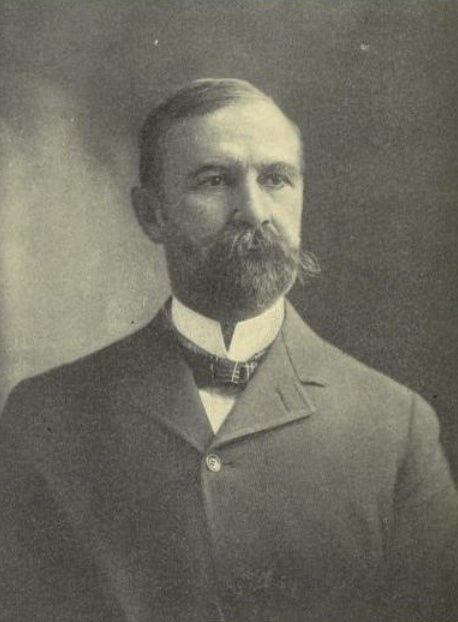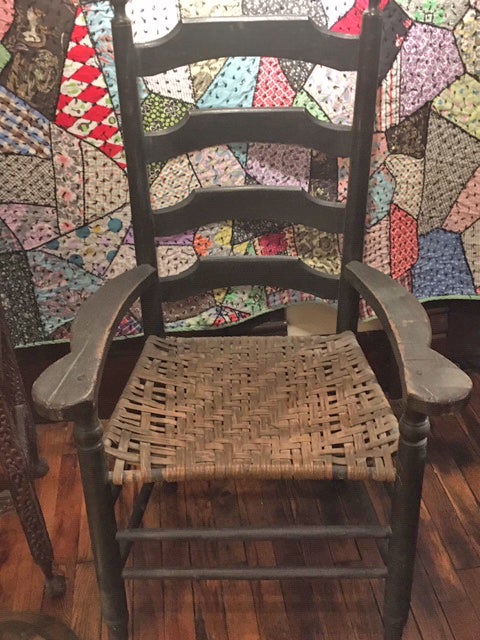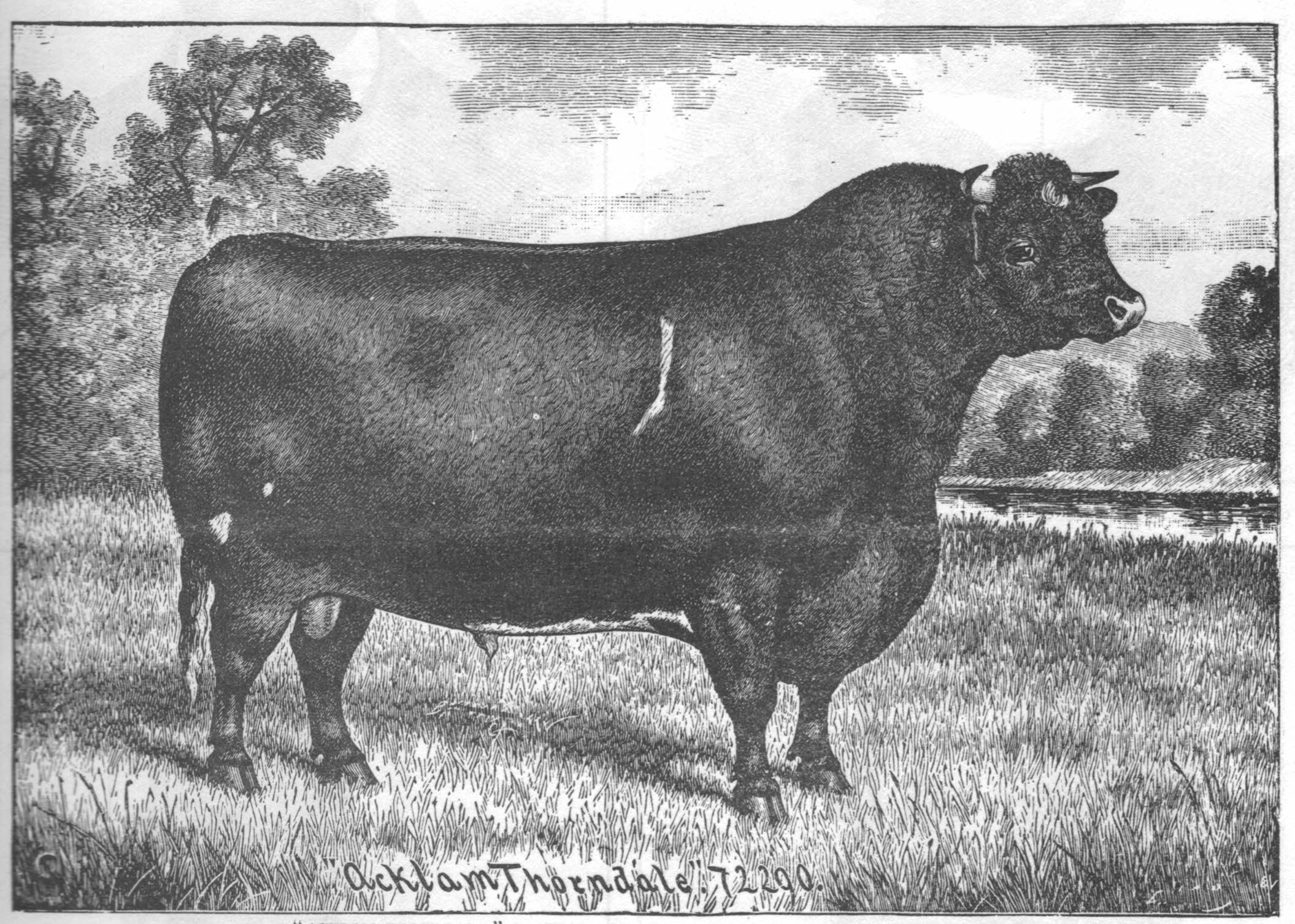ENOCH: From the files of early Winchester newspapers
Published 11:47 am Tuesday, May 26, 2020
|
Getting your Trinity Audio player ready...
|
One of my peculiar pleasures is to browse the contents of old newspapers.
The Winchester Sun traces its beginning back to The Smooth Coon, which debuted on Sept.2, 1778, with James J. Adams as publisher and editor.
That paper soon gave way to Adams’ Semi-Weekly Sun, whose first issue appeared on Nov. 1 that year. An annual subscription cost $1.50.
Clark County Public Library has microfilm copies of Winchester’s early newspapers, including the Semi-Weekly Sun.
I pulled a single issue from my files — July 22, 1879 — and was amazed to find so many fascinating historical tidbits.
The first article that stood out concerned the then current rage for shorthorn cattle. A.C. Quisenberry described his visit to Benjamin F. Van Meter’s “Sycamore and Stock Place.”
“A sumptuous and elegant dinner was prepared by Mrs. Vanmeter. After dinner the different families of Short-Horns were visited. Mr. Vanmeter has upon his place the largest herd of Short-Horn Cattle in the world, having something over three hundred head. The herd was founded in 1854, Mr. Vanmeter then receiving from the estate of his deceased father [Isaac] five choice heifers, descendants of Imp, Young Mary and Young Phyllis, and in 1869, five females were added from the herd of Mr. Abe Renick. The herd contains more than thirty of the get [offspring] of the 4th Duke of Geneva. The bull was purchased by Mr. A. Renick and B. F. Vanmeter in the spring of 1872.”
On another page of that issue, “One day last week, Abram Renick’s famous bull, 4th Duke of Geneva ‘went dead.’ Several years ago he refused an offer of $16,000 for the bull.”
In the summer of 1880, the Rees House hosted about 500 guests at the Short-Horn Breeders’ Convention. Five years later, when the shorthorn market collapsed, “Cattle which had been selling for thousands dropped to hundreds, and even tens. Fortunes followed.”
Another article described the origin of Clark County’s “Blue Ball Precinct.”
“We have frequently heard people wonder how Blueball precinct in this county came to have such an odd name. The way of it is this: A number of years ago, there was a tavern near where Dudley Flynn now resides, and it had a large wooden ball, painted blue, for a sign and was known as the Blue Ball Tavern. It was a place of some note and was the voting place of that part of the county. About the close of the war, the voting place of the precinct was changed to Winchester, but the precinct retained the old name.”
City Commissioner Ramsey Flynn, who descends from Dudley, recalls he was shown the location of the old tavern, which still stands on the south side of Ecton Road at the bottom of the hill just past the Mountain Parkway.
According to J. Winston Coleman’s Stage-Coach Days in the Bluegrass, Blue Ball was a noted antebellum tavern and stagecoach stop.
John P. Wills kept the Blue Ball Tavern in his house, dating back to October 1829, when he requested a license from the county court.
In 1879, we learn, there was still a thriving market for Clark County wheat.
“The activity in the wheat trade has slackened a good deal at this point owing to the fact that the supply is about exhausted. During the season Bush & Sutherland have bought about 45,000 bushels and S. P. Kerr has bought about 25,000 bushels. A number of crops are yet to come in.”
W.D. Sutherland sold his steam-powered flour mill, the Eclipse Mills, to Kerr the year before.
Kerr would go on to local notoriety as proprietor of the Winchester Roller Mills.
V.W. Bush would complete his iconic grain warehouse near the railroad depot in 1880.
“Quite a number of persons turned out to meet Prof. De Garmo at Simpson’s Hall last Friday evening, and we are glad to know that he will succeed in getting up a good class at this place. He gives another soiree at the hall to-night.”
Winchester’s first mayor, James D. Simpson, built Simpson’s Music Hall in 1877.
After the original burned, Simpson replaced it with the Opera House in the early 1890s. This local landmark has been carefully restored to its former grandeur by Vanessa and Edward Ziembroski.
Charles De Garmo (1849-1934) was a nationally recognized author and speaker on education theory and practice.
Main Street businesses received frequent plugs in the newspaper.
“Gnadinger’s new front has been completed, and his stock of confectionaries, fruits, &c. is new and complete. His ice cream parlor is fitted up especially for ladies, and he has the nicest, freshest cream always on hand. Give him a call.”
German-born Anthony Gnadinger (1847-1922) opened his confectionary, bakery and restaurant on Main Street in 1875, and continued until he moved to Cynthiana sometime after the turn of the century. His shop was located at 23 S. Main St., until recently the home of Bentley & Murray antiques.
The advertisements are, quite possibly, as interesting as the articles.
“WEBSTER HOUSE Bar Room. J. W. Bennett, proprietor. The following pure imported Liquors are always on hand: Holland Gin, Jamaica Rum, Irish Whisky, Sherry Wine, Rhine Wine, Dublin Porter, French Brandy, Claret Wine. N.B. Whiskey 10 cents a drink.”
Leslie C. Webster’s tavern began life as the Clark House, circa 1809, established by Col. John Martin. After the building was destroyed by a fire in 1880, Clark County National Bank was erected on the site.
Another advertised chairs that were destined to become collectors’ items.
“CHAIR FACTORY! R. M. King has opened a complete Chair Factory at Vinewood on the Mt. Sterling and Winchester turnpike, 3½ miles from Winchester, where he will make and repair all kinds of chairs in the best style. These chairs are the best made, being the well-known King Make.”
Robert M. King was the artisan responsible for what are still known in the antique trade as “King chairs.” Bluegrass Heritage Museum has a King chair on display that belonged to Kathryn Owen.
Harry Enoch, retired biochemist and history enthusiast, has been writing for the Sun since 2005. He can be reached at henoch1945@gmail.com.








